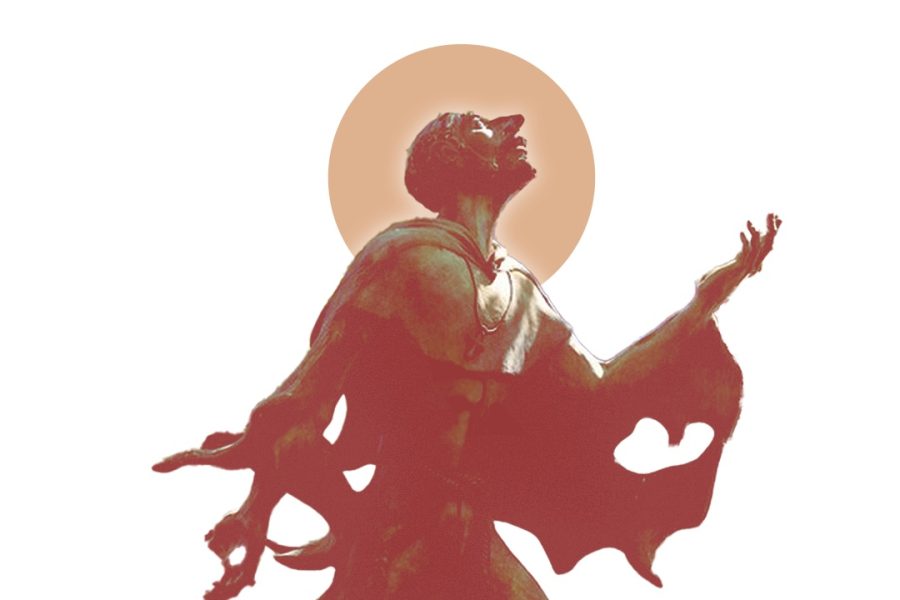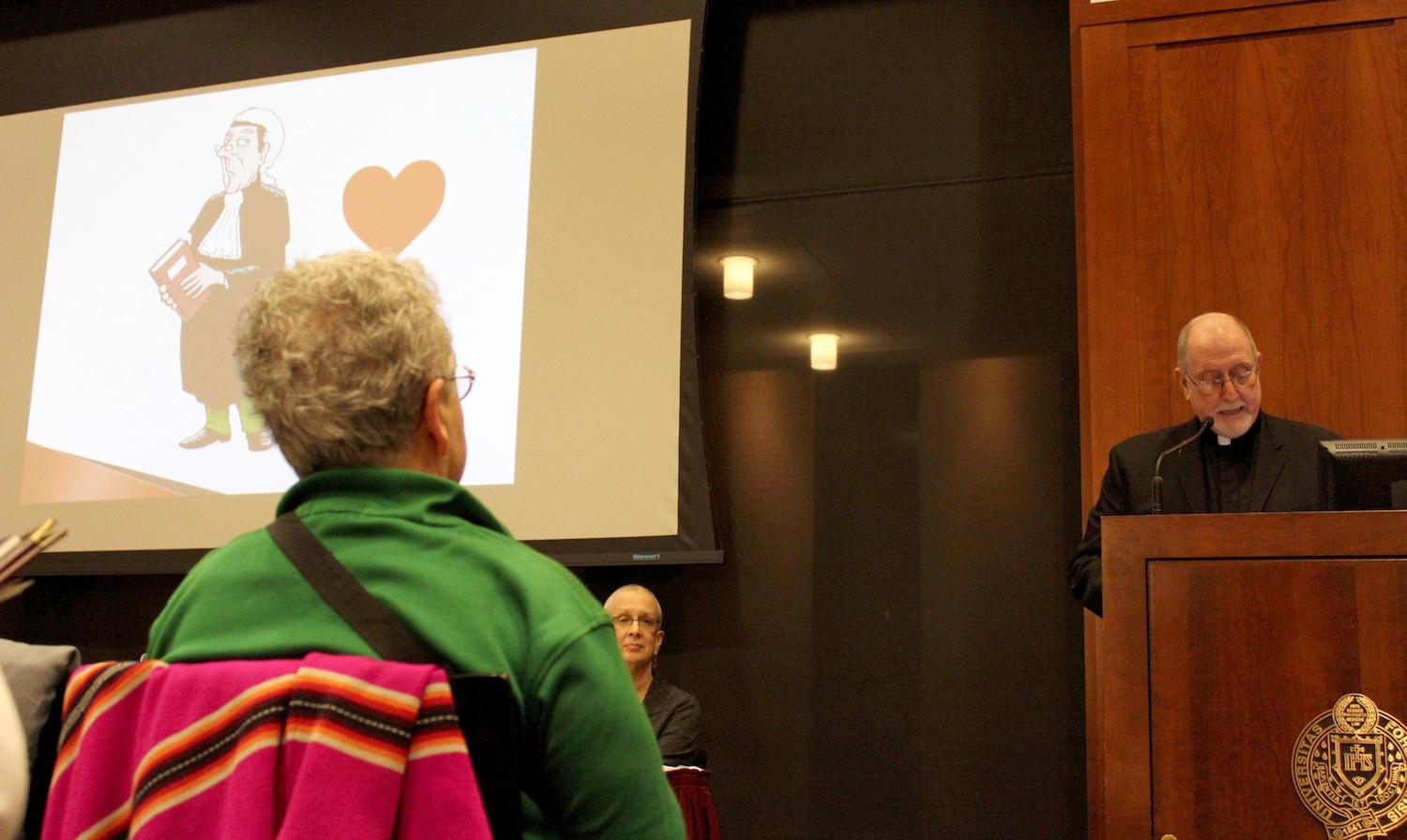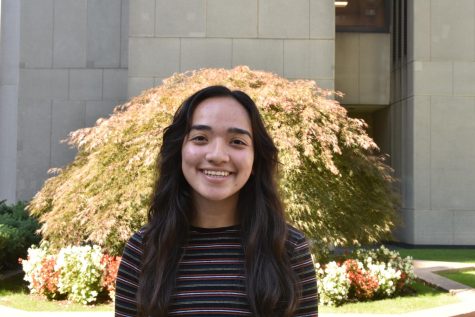Fordham’s Apologetic Approach to Catholicism
Fordham regards its religious identity with embarrassment — here’s how we could better own our faith
May 4, 2022
Though Fordham advertises that the university is proudly Jesuit and Catholic, its policies on religion are remarkably lukewarm. With an increasingly secular student body and an even more religiously unengaged faculty, Fordham’s administration has chosen an apologetic stance toward the school’s faith. This policy must change. Fordham should make a stronger commitment to social justice and inclusivity, allowing it to take pride in its Catholic identity.
Fordham’s student body is comprised mainly of students who are apathetic toward the university’s Catholic identity, with only 39.4% of the class of 2025 identifying as Catholic. On tours, prospective high schoolers are often told, sometimes with an air of embarrassment, that sure, Fordham is a Catholic school, but don’t worry — that won’t affect you if you don’t want it to.
This alone is not particularly surprising. Fordham students’ disconnect from Christianity reflects broader trends in our generation. To a certain extent, Fordham can’t be held responsible for a phenomenon that is represented in all corners of U.S. society. Everywhere in America, including at Fordham, Catholics are expected to qualify their religious identity with the assurance that they’re “not one of those Catholics,” acceding to an unfair stereotype that Catholics are superstitious and bigoted.
Indeed, a diversity of faith is an enriching and important quality at an institution of higher learning.
None of this is to say that Fordham should demand that all of its students practice Catholicism. Indeed, a diversity of faith is an enriching and important quality at an institution of higher learning. Pedro Arrupe, a superior general of the Jesuits in the late 20th century, famously joined his faith with other religious traditions to combat religious tribalism and advocate for their shared value of social justice. Thomas Merton is similarly famous for cross-religious dialogue. Fordham should strive to live these ideals.
However, given that Fordham owes its foundation to Catholicism and its prestige to the Jesuits, we might expect to see more of an effort among Fordham’s faculty and administration to make it a place that advocates Catholic values as beneficial to people of all faiths. Instead, the university apologizes for them.
Many students get the impression from Fordham’s administration that we are only an ostensibly Catholic school. Phrases like “cura personalis” and “men and women for others” float around, defined in such a vague way that some feel they aren’t applied at all. What efforts the administration does make, such as including students in emails from New York’s cardinal, are easy to ignore or avoid.
For years, Fordham has prioritized academic prestige, choosing to climb the rungs of U.S. News & World Report’s college rankings and selective admissions over any tangible effort to make the university truer to Catholic values. Catholic universities that don’t apologize for their Catholicism — some with prestige equal to or greater than that of Fordham, like Notre Dame — prove that scholarly success and commitment to faith are not mutually exclusive.
Although the admissions department never ceases in boasting the Gabelli School of Business, high schoolers and their parents hear next to nothing of the quality of students’ faith or the religious mission of the school. If Fordham produces thousands of future executives and none of them have a strong commitment to Catholic values such as creating a preferential option for the poor, what does this university have to be proud of?
Then there’s the faculty. At any tolerant and open-minded Catholic institution, one would expect to see plenty of professors who are not Catholic, but the number of Fordham teachers who are hostile to traditional Catholicism is surprising and problematic. I’ve had teachers who have operated under the assumption that the Church has been an instrument of cruelty and evil in America, completely disregarding the good it has done. I have learned through friends about classes that exclusively taught shameful controversies facing Catholicism while highlighting none of the institution’s many efforts for justice.
Many professors at Fordham are more invested in the religion of modern progressivism than in the faith of this university. They care more about teaching the American political left’s dogmas of race, gender and sexuality than they do about teaching the Church’s values of charity, forgiveness and care for the poor.
How could Fordham better own its faith? We have reason to hope that President-elect Tania Tetlow, J.D., will bring a culture of more intentional Catholicism. In his announcement of Tetlow’s election, Robert Daleo, chair of the board of trustees, shared a portion of her letter to the board: “The generation of students we recruit … want something more than virtue. … (T)hey want to fix a broken world. They push on assumptions, question authority, and have remarkable courage. What they don’t know (until we tell them) is that there is nothing more Jesuit than that.”
Ideally, every Fordham student — religious or not — should know that if they ever need emotional support, a conversation with someone who cares for their well-being or just any interaction rooted in pure kindness, they can come to the Catholics.
Certainly this approach has merit. Where some students view the Catholic Church as an instrument of the oppression they hope to overthrow, Fordham could demonstrate to them the many ways that Catholicism is a means of fighting such oppression.
I, however, hope for a little more than social justice. One of the things that has always struck me about Fordham’s Campus Ministry community is how welcoming it is. The Mass-going crowd at Fordham is incredibly generous and kind. Not enough students are aware of this community. Fordham’s Catholics need to make more of an effort to show everyone on campus that they are loved.
Ideally, every Fordham student — religious or not — should know that if they ever need emotional support, a conversation with someone who cares for their well-being or just any interaction rooted in pure kindness, they can come to the Catholics. That, after all, is the message of Christ: Everybody is welcome.













Publius • May 12, 2022 at 1:43 pm
I was reading the article trying to find the root of where this opinion was coming from, and all of a sudden there it was:
“Many professors at Fordham are more invested in the religion of modern progressivism than in the faith of this university. They care more about teaching the American political left’s dogmas of race, gender and sexuality than they do about teaching the Church’s values of charity, forgiveness and care for the poor.”
So the school, or at least the faculty, are not “teaching” far enough on the political right for you. Don’t bury the lede.
Benedict Reilly • May 5, 2022 at 11:54 pm
Thank you, Patrick, for starting this conversation, it is important.
“Lord I am not worthy to receive you but only say the word and my soul shall be healed”
Perhaps we need a more authentic apology to become a more authentically Catholic university? The current apologetic stance seeks to protect the University and Church’s reputation rather than to genuinely confront the face of God amidst those the Church has hurt (and then take steps towards reconciliation). Its brazenness makes it feeble, and, in turn, weakens the church’s integrity. A stronger acknowledgement of the church’s sin is what is needed to more authentically proclaim the church’s sanctity.
I think it is important that the article cited to evidence classes that “exclusively taught shame” of the church said that same class solidified a conversion to the faith. Apologizing is an important way that we bear witness to the Gospels.
Secular Student Alliance • May 4, 2022 at 7:57 pm
Perhaps Fordham should ask their nonreligious students how they feel, rather than make assumptions about how “welcoming” the Catholic students are. Over several years, members of the Secular Student Alliance had shared they feel isolated and stigmatized, don’t feel welcomed, had their opinions or participation are not valued in classroom discussions, challenged the University’s policies on women’s campus health care, and challenged the Catholic teachings around homosexuality and the University’s differing policies for LGBT+ students.